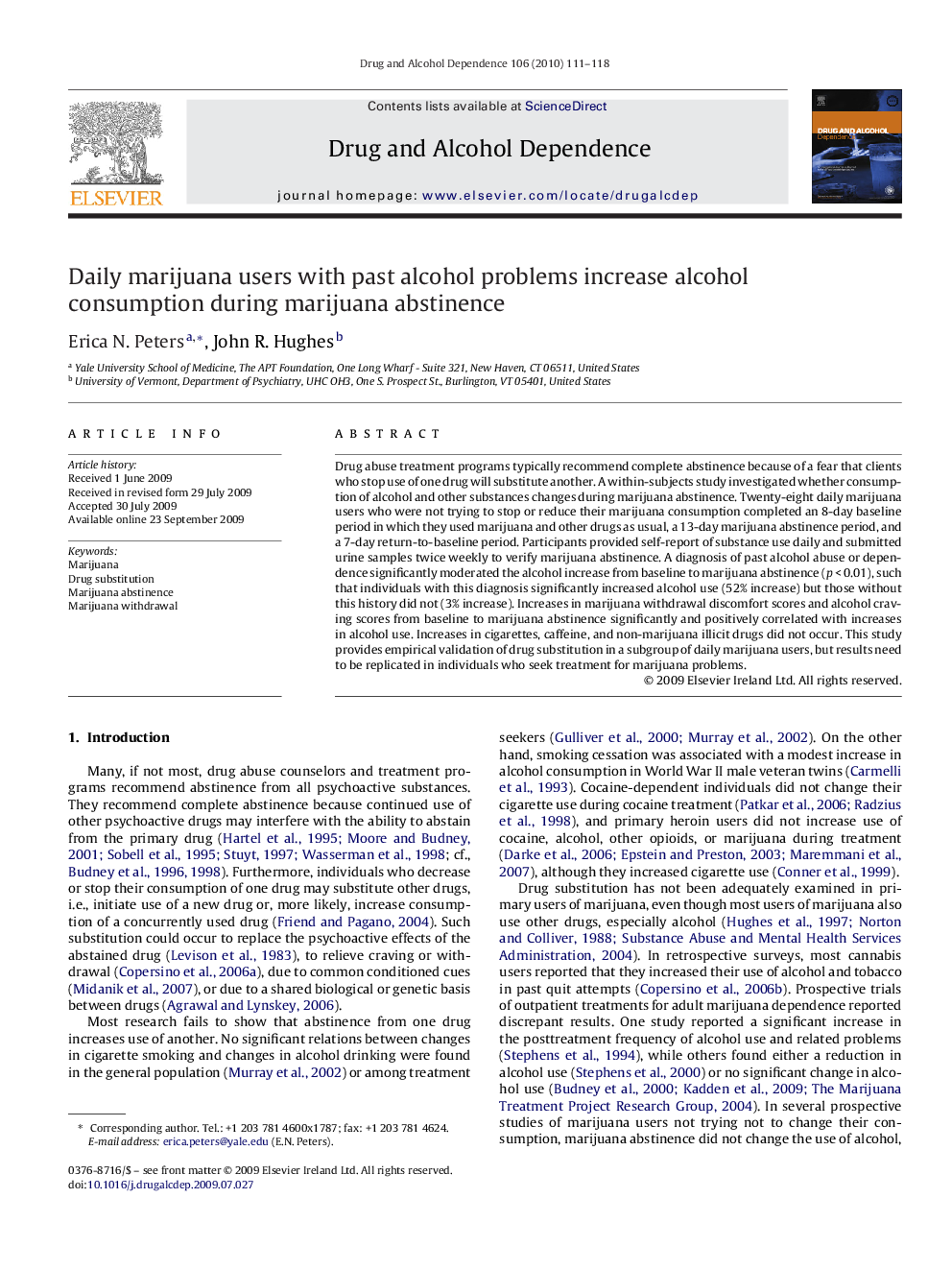| کد مقاله | کد نشریه | سال انتشار | مقاله انگلیسی | نسخه تمام متن |
|---|---|---|---|---|
| 1070443 | 1486185 | 2010 | 8 صفحه PDF | دانلود رایگان |

Drug abuse treatment programs typically recommend complete abstinence because of a fear that clients who stop use of one drug will substitute another. A within-subjects study investigated whether consumption of alcohol and other substances changes during marijuana abstinence. Twenty-eight daily marijuana users who were not trying to stop or reduce their marijuana consumption completed an 8-day baseline period in which they used marijuana and other drugs as usual, a 13-day marijuana abstinence period, and a 7-day return-to-baseline period. Participants provided self-report of substance use daily and submitted urine samples twice weekly to verify marijuana abstinence. A diagnosis of past alcohol abuse or dependence significantly moderated the alcohol increase from baseline to marijuana abstinence (p < 0.01), such that individuals with this diagnosis significantly increased alcohol use (52% increase) but those without this history did not (3% increase). Increases in marijuana withdrawal discomfort scores and alcohol craving scores from baseline to marijuana abstinence significantly and positively correlated with increases in alcohol use. Increases in cigarettes, caffeine, and non-marijuana illicit drugs did not occur. This study provides empirical validation of drug substitution in a subgroup of daily marijuana users, but results need to be replicated in individuals who seek treatment for marijuana problems.
Journal: Drug and Alcohol Dependence - Volume 106, Issues 2–3, 15 January 2010, Pages 111–118